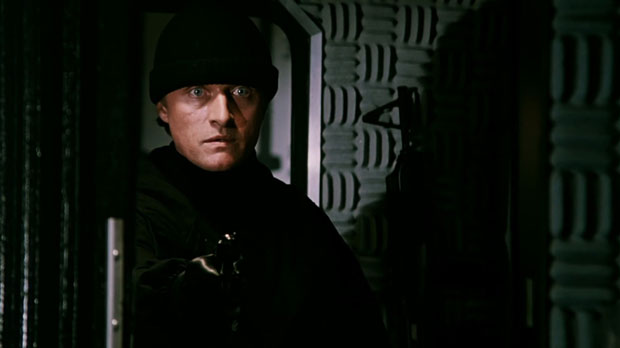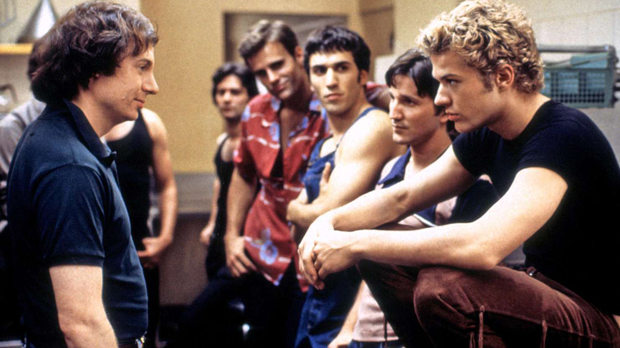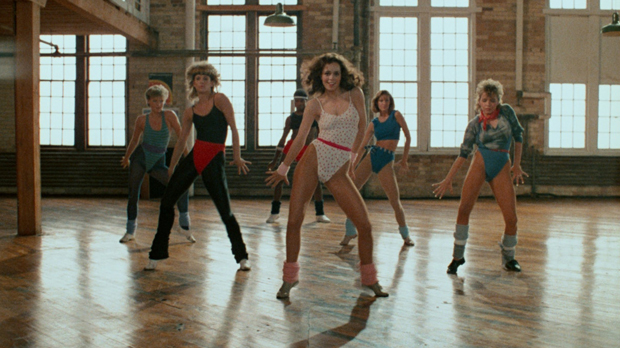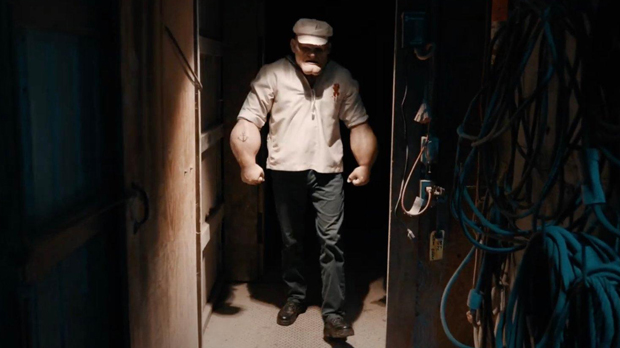 The Osterman Weekend (1983) 20th Century Fox/Action-Thriller RT: 103 minutes Rated R (strong violence, nudity, sexual content, language, drugs) Director: Sam Peckinpah Screenplay: Alan Sharp Music: Lalo Schifrin Cinematography: John Coquillon Release date: November 4, 1983 (US) Cast: Rutger Hauer, John Hurt, Craig T. Nelson, Dennis Hopper, Chris Sarandon, Meg Foster, Helen Shaver, Cassie Yates, Sandy McPeak, Christopher Starr, Burt Lancaster, Cheryl Carter. Box Office: $6.4M (US)
The Osterman Weekend (1983) 20th Century Fox/Action-Thriller RT: 103 minutes Rated R (strong violence, nudity, sexual content, language, drugs) Director: Sam Peckinpah Screenplay: Alan Sharp Music: Lalo Schifrin Cinematography: John Coquillon Release date: November 4, 1983 (US) Cast: Rutger Hauer, John Hurt, Craig T. Nelson, Dennis Hopper, Chris Sarandon, Meg Foster, Helen Shaver, Cassie Yates, Sandy McPeak, Christopher Starr, Burt Lancaster, Cheryl Carter. Box Office: $6.4M (US)
Rating: **
The Osterman Weekend is a big convoluted mess, but it’s not entirely the fault of director Sam Peckinpah (The Wild Bunch). It happened like this. His original version was screened once and only once. The test audience’s reaction was overwhelmingly negative. Many viewers walked out long before it was over. They complained it was confusing and impossible to follow. The producers asked Peckinpah to re-edit the movie. When he balked at their request, he was fired and they did it themselves. The end product is a slick but incomprehensible action-thriller.
This past weekend, I watched both the theatrical cut and Peckinpah’s rough cut. I’m sad to say that the longer cut (116 minutes) doesn’t clarify a damn thing. I didn’t understand it any better than when I watched the version released to the public. Here’s what I did understand. John Tanner (Hauer, Blade Runner), a controversial TV journalist who’s highly distrustful of the government, is approached by CIA agent Fassett (Hurt, Alien) who informs him that three of his closest friends- stock trader Cardone (Sarandon, Fright Night), plastic surgeon Tremayne (Hopper, Easy Rider) and TV producer Osterman (Nelson, Poltergeist)- are secret KGB operatives working for an outfit called Omega.
The CIA, headed by Maxwell Danforth (Lancaster, Atlantic City), needs Tanner to turn one of them against the others in order to bring down the whole Soviet network. They want him to do it during an upcoming weekend get-together at Tanner’s house. Fassett will be watching them the whole time via closed-circuit cameras installed in every room. Of course, it’s all BS. Fassett has something else in mind, namely revenge. He hasn’t been right since the CIA-sanctioned murder of his wife two years earlier.
That’s about all I can tell you about the plot of The Osterman Weekend. It’s sad to think this is Peckinpah’s final film (he died in December ’84). He was seriously ill during filming which goes a long way towards explaining the movie’s lazy execution. It’s clear he wants to say something about the media (television, in particular) and a world where privacy no longer exists with Big Brother watching our every move. Whatever it is, it gets lost in all the confusion. Most (if not all) of the film’s problems can be traced back to a poorly written screenplay by Alan Sharp (Night Moves) adapting the 1972 novel by Robert Ludlum (The Bourne Identity). I’ve never read the book, but it has to make more sense than its cinematic incarnation.
Not all of The Osterman Weekend is bad. There are a few effective moments, but they do little to hold the movie together. It falls apart long before the end. One of the best scenes is the car chase in which Tanner pursues the fellow that attempts to kidnap his wife Ali (Foster, They Live) and son (Starr). It’s good, but nowhere near the level of any given chase in The Getaway. Also, the climactic sequence with Tanner taking on home invaders is a pale imitation of the climax of Straw Dogs.
I must admit The Osterman Weekend has an impressive cast. It makes me wonder if they had any idea what was going on in the story. They don’t look lost at sea which either means they actually understood the plot or they’re better actors than anybody imagined. My money’s on the second one. In any event, the performances range from okay to hammy, the latter of which defines Nelson who sports a moustache that definitely deserves a credit of its own. Hopper and Sarandon go underused which is an egregious waste of talent. Hauer, in his first starring role in an American film, does pretty well as the hero of the piece. At the time, I knew him best for his villainous roles in Nighthawks and Blade Runner. He was great in both films. With The Osterman Weekend, he shows he can be the good guy too.
I’d like to wrap up by talking about a subplot that was removed from The Osterman Weekend when the producers went to work on it post-production. It seems that Tanner was having an affair with his director; that is, until he finds her dead (killed by the CIA, of course) the morning after one of their “meetings”. It’s supposed to explain the tension between him and his wife, but I don’t see it. To me, it just seems superfluous.
As much as I want to like The Osterman Weekend, it’s just not a good movie. I get that Peckinpah wasn’t in top form when he made it. Studio interference certainly didn’t help matters any. This is one of those rare instances when I’m in full support of a remake. The right filmmaker could do wonders with the material. I doubt they’ll find a better cast than this, but you never know.




